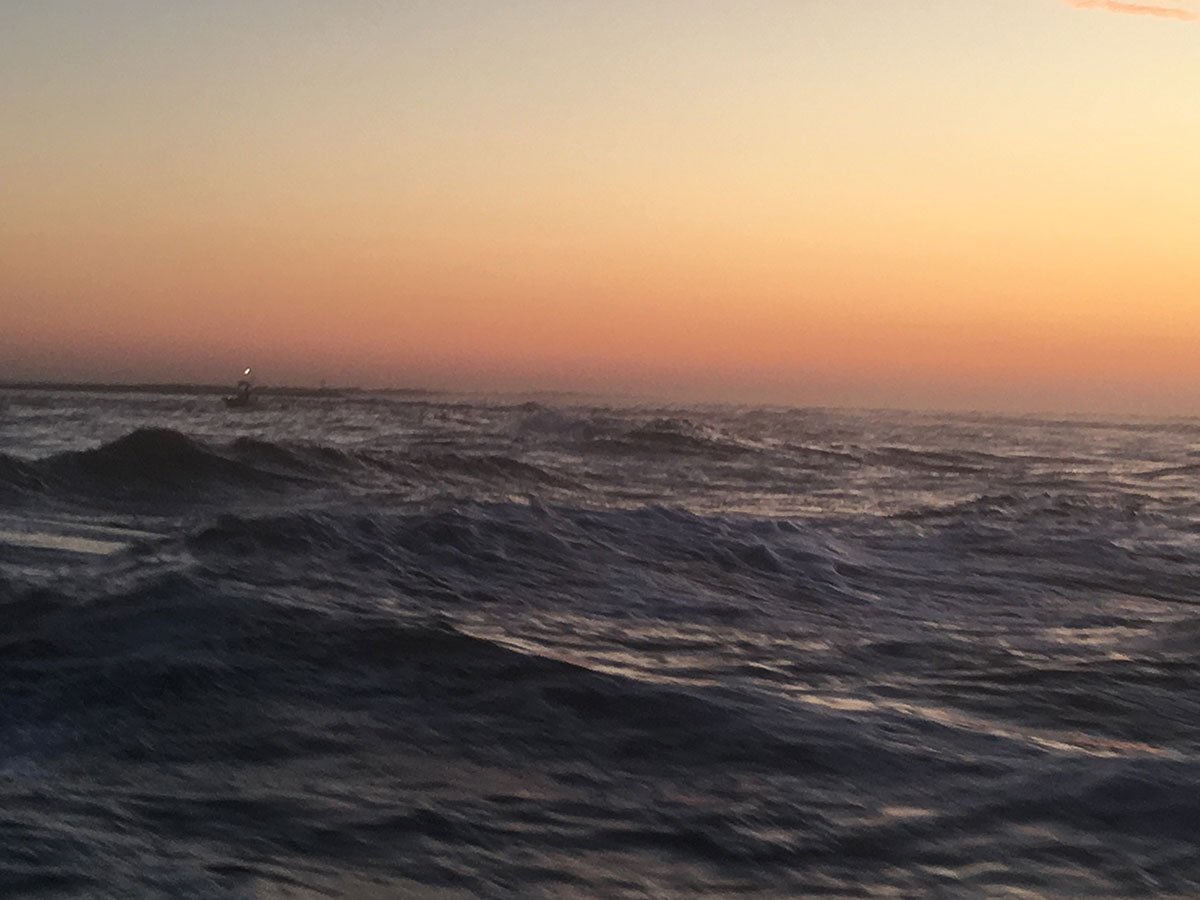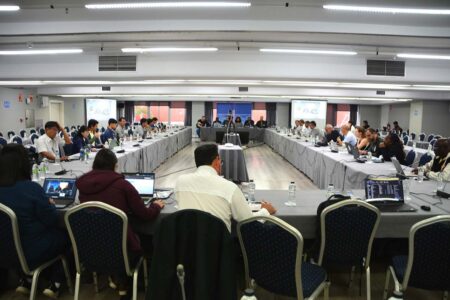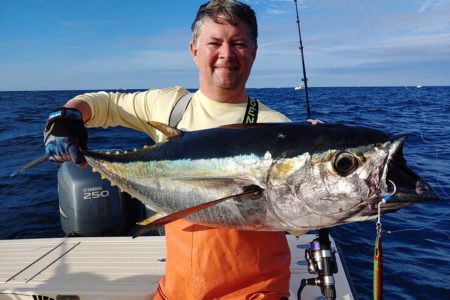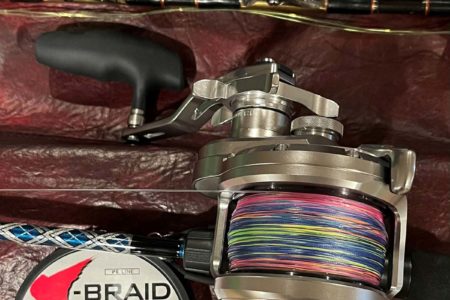
Every season I see more and more center consoles and smaller boats offshore fishing; you’ll often see me on a 24- to 32-foot one myself. When fishing offshore on a boat of any size you must pay specific attention to weather, especially in the fall. We are in an active time for hurricanes and nor’easters, the days are shorter, and weather seems to change more quickly than any other time of the year.
Let’s start with lightning; while we’re at the later stages of “lightning” season, no recreational boater or fisherman wants to be out in any bad storm, especially thunderstorms. If you are threading a needle and making a trip before a storm hits pay special attention of the storm’s speed, track and evolving conditions when out. Be prudent and leave yourself enough time to be safely tied to the dock prior to a storm hitting.
Second most important consideration is your inlet. It may be possible to get out and comfortably fish, but when returning if navigating your inlet is questionable you may want to bag your trip. East winds are terrible for inlets, and anything stronger than 15 knots should be noted. Watch wind against tide or any conditions that will stack waves up at your inlet, and know when tides are going to change. You may need to rush in or possibly delay your entrance to a more forgivable time. Delaying your departure maybe a good idea too. Everyone wants to be on the grounds at first light, but if it’s not safe to do so, don’t. Change your game plan or quarry so you can leave when it’s safe. If you don’t like what you see, maybe stay inshore for bottomfish or stripers.
Subscribing to a reputable weather service with an easy to use interactive app is a huge help; SiriusXM Marine with new Fish Mapping might be a good consideration for those looking to fish the best possible windows. Just remember that it’s common to hear on the VHFi “The weatherman really blew that one,” when in fact they might have been right on point, just some intraday variables changed. Look at predictions and make your own assumptions and evaluations. Swells of 3 feet at 10 seconds apart are very comfortable.
If the wind model shows 15 knots plus winds cut the period in half and double the wave height. Would you fish in 6-footers at 5 seconds? If the wind speeds up by 5 knots and shifts against the current the waves will stand up and the period will increase. The prediction could be spot on, but if some simple variables change so will the conditions. Know if wind speeds and direction are supposed to change and when.
When on the edge there are many instances where “getting out of Dodge” is ideal. We have all been guilty of it, sticking around on a hot bite as the weather turns. Eventually you find yourself white knuckled in 8-foot seas cruising home at 10 knots. If you feel and see conditions changing, get up and run. Put some miles behind you and head to a spot closer to home. Start fishing again with most of the ride home behind you.
File a float plan. This sounds very formal but can be very simple and is often overlooked. Sending a text to someone on land that includes departure time, your heading and expected time back is a great start. Include who is onboard and other details that may help in times of an emergency. I have a rule with my wife, she gets that text before every trip. If I am two hours over due, she will call the Coast Guard and report me as overdue. This doesn’t mean send out a search party, but the situation is logged, and a process will start. The first step, trying to raise me or someone who may know my where about and condition. Satellite phones and InReach have made communication easier, but they are not fool proof. Dead batteries, satellite issues and other factors can affect their use and limit communication.
Don’t blame the weatherman for your own indiscretions and trips that go bust. Be safe and learn when and where to go, and when to stay tied to the dock. Put pride and ego away and don’t force things. Have many options pre-planned in your mind and chartplotter. If you get dealt some bad cards while on a trip change things up.
Live to play another day!



